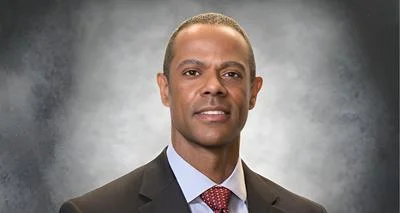Cotillion Sneddy, ECECD Assistant Secretary for Native American Early Education and Care | Cotillion Sneddy | LinkedIn
The state of New Mexico announced its joint efforts with four tribal governments to enhance pre-K programs in a press release on July 27. By allocating a portion of the $98 million funding from the expansion of the early childhood education services initiative, they plan to create an additional 554 slots in tribal pre-K programs for the Navajo Nation, the To'Hajiilee Chapter of Navajo Nation, Mescalero Apache Tribe, and Pueblo of Nambé through intergovernmental agreements.
“We are thrilled to partner with New Mexico’s pueblos, tribes, and nations to bring the benefits of New Mexico pre-K to the families and young children in their communities,” said Cotillion Sneddy, Early Childhood Education & Care Department (ECECD) Assistant Secretary for Native American Early Education and Care.
According to the press release, New Mexico unveiled its involvement in the historic expansion of early childhood education services in collaboration with four tribal governments. Utilizing part of $98 million in funding, this partnership aims to create 554 new slots in tribal pre-K programs, fostering a pre-K partnership with the tribal governments through Intergovernmental Agreements. This approach grants greater educational sovereignty to the tribes, allowing them to tailor the pre-K curriculum and standards to their communities' specific needs and embedding most of the new tribal pre-K classrooms within existing Tribal Head Start programs according to the press release.
“This is a major step forward in the State of New Mexico’s efforts to ensure that young Native American learners have equitable access to high-quality, culturally and linguistically relevant early education that has shown to improve school readiness and outcomes for children,” Sneddy said, according to the release.
Located in the APS School District, the To’Hajiilee Community School secured funding for 20 Extended (1080 hours/year) pre-K slots with a three-year award amount of $906,500, the release said. Navajo Nation Head Start will offer 44 mixed (3- and 4-year-olds) extended slots and 456 dual extended plus slots at various Head Start locations within New Mexico, with a three-year award amount of $8,652,800. The Pueblo of Tesuque, located in the Pueblo of Tesuque, has been granted funding for 10 Mixed Extended slots, totaling $532,000 over three years. Mescalero Apache Tribe, a new pre-K provider in Mescalero Apache, has been funded for 8 Mixed Extend Plus (1380 hours/year) slots with a three-year award amount of $561,000. Additionally, Nambé Pueblo Head Start, located in the Pojoaque Valley School District, will provide 16 mixed Extended Plus slots, receiving $1,078,000 in funding over three years. These investments aim to enhance early childhood education access and opportunities for children in the region according to the press release.
“Navajo Head Start is excited to begin the extension of service hours this summer with the help of ECECD,” said Roy Tracey, delegated assistant superintendent for Navajo Head Start said, according to the press release. “Twenty-six Navajo Nation-New Mexico Head Start sites will benefit from the pre-K funding and extended hours, which will have a major impact on the young children in our communities. The Navajo Head Start and ECECD partnership will deliver high-quality early childhood education and improve access for families and children in New Mexico.”
“I want every 3- and 4-year-old child to access high-quality early childhood education no matter where they live, and these partnerships are critical to achieving that goal,” New Mexico Gov. Michelle Lujan Grisham said, according to the release. “An essential part of these agreements is also their flexibility, ensuring that tribal sovereignty is respected, and cultures and languages are preserved through these programs.”









